Student Voice Matters
This national campaign, launched by Youth on Board, encourages schools to give students opportunities to provide feedback on teacher practice and classroom culture in order to improve teaching and build student-teacher relationships. The site includes a dynamic gallery of students sharing why they feel student voice matters in the classroom as well as a video… Read More ›
Student Experiences with Student Centered Learning
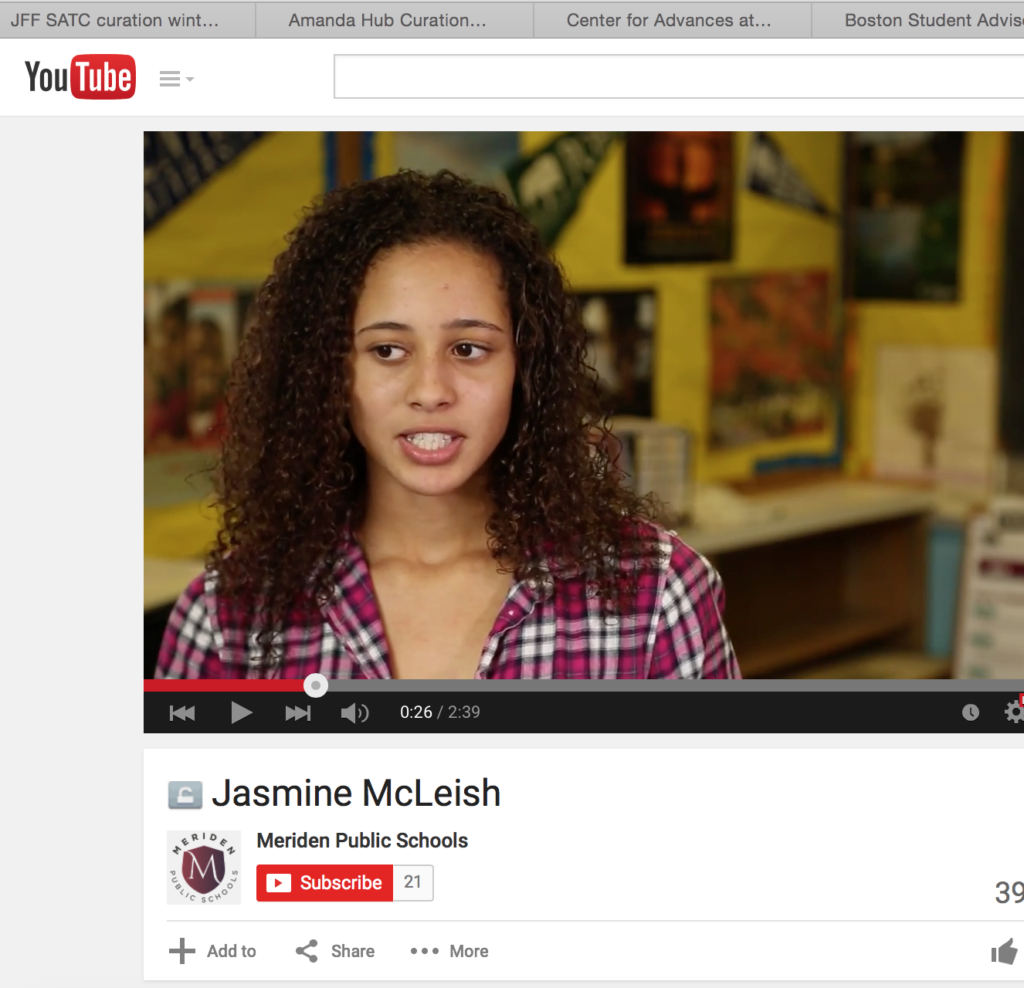
This video series highlights the experiences of students in Meriden Public Schools in Connecticut. The first video provides an overview of students’ thoughts on several key components of student-centered learning: collaboration, use of technology, choice, real world application, and voice/communication. The following nine video clips each feature a student. Students discuss the use of technology… Read More ›
Adobe Youth Voices
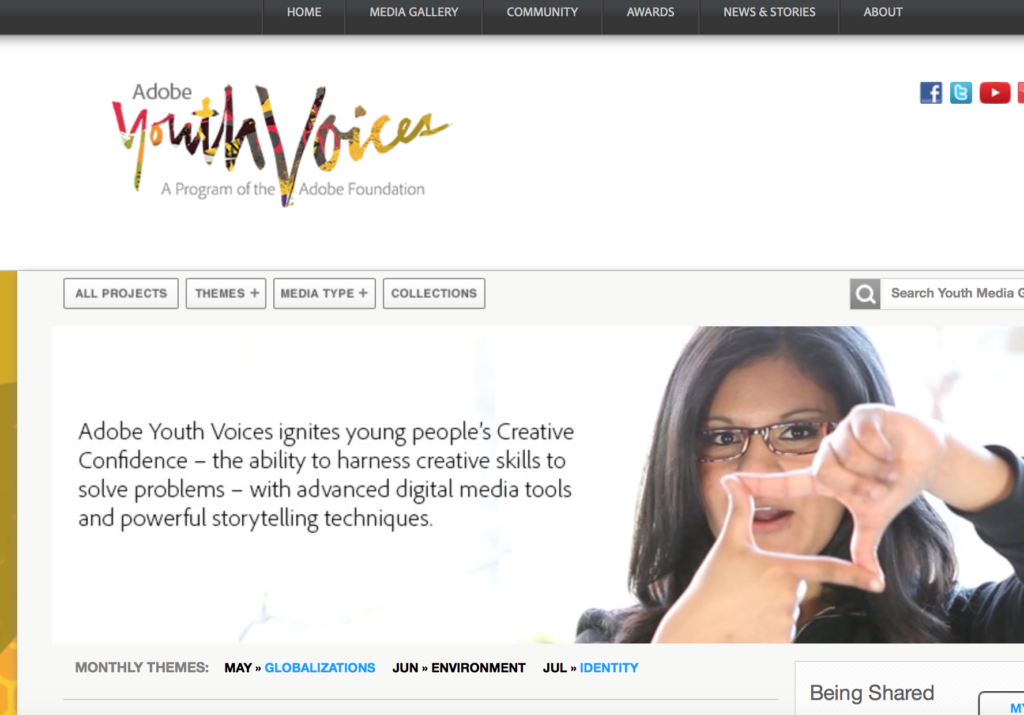
Adobe Youth Voices works to engage and inspire youth, aged 13-19, to get involved in their communities and build creative confidence, a skill much needed for the 21st century. The organization partners with community and youth development organizations in over 60 countries and provides professional development to educators to support student’s development of digital media… Read More ›
Meaningful Student Involvement: Guide to Students as Partners in School Change
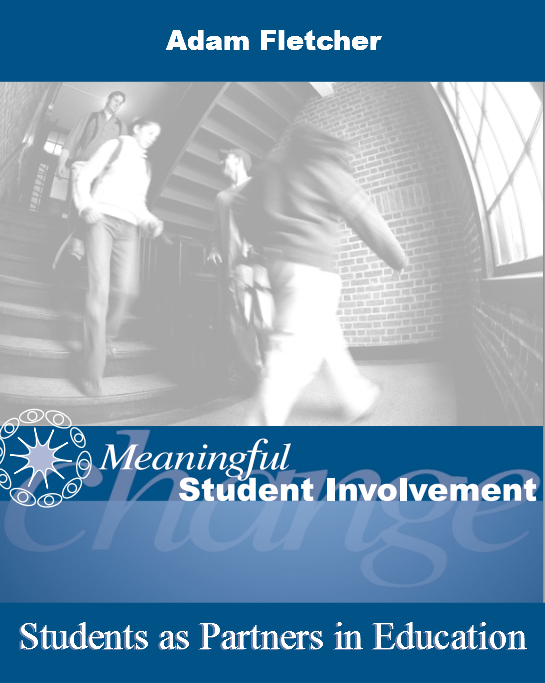
This guide outlines how student involvement can be truly meaningful. SoundOut believes by engaging students as education planners, researchers, teachers, evaluators, decision-makers and advocates, they can become partners in the change process in the school and district. This guide begins by introducing the elements of meaningful involvement and key characteristics of schools with this authentic… Read More ›
EdSurge EdTech Index

This index includes hundreds of education technology products. Users can search products by filtering a number of categories including “audience,” “cost,” and “tech requirements.” The EdSurge EdTech Index provides overviews and reviews (based on interviews with educators) on a number of products. Source Organization: EdSurge Visit the Resource
First Ask, Then Listen: How to Get Your Students to Help You Teach Them Better, A Teachers Guide
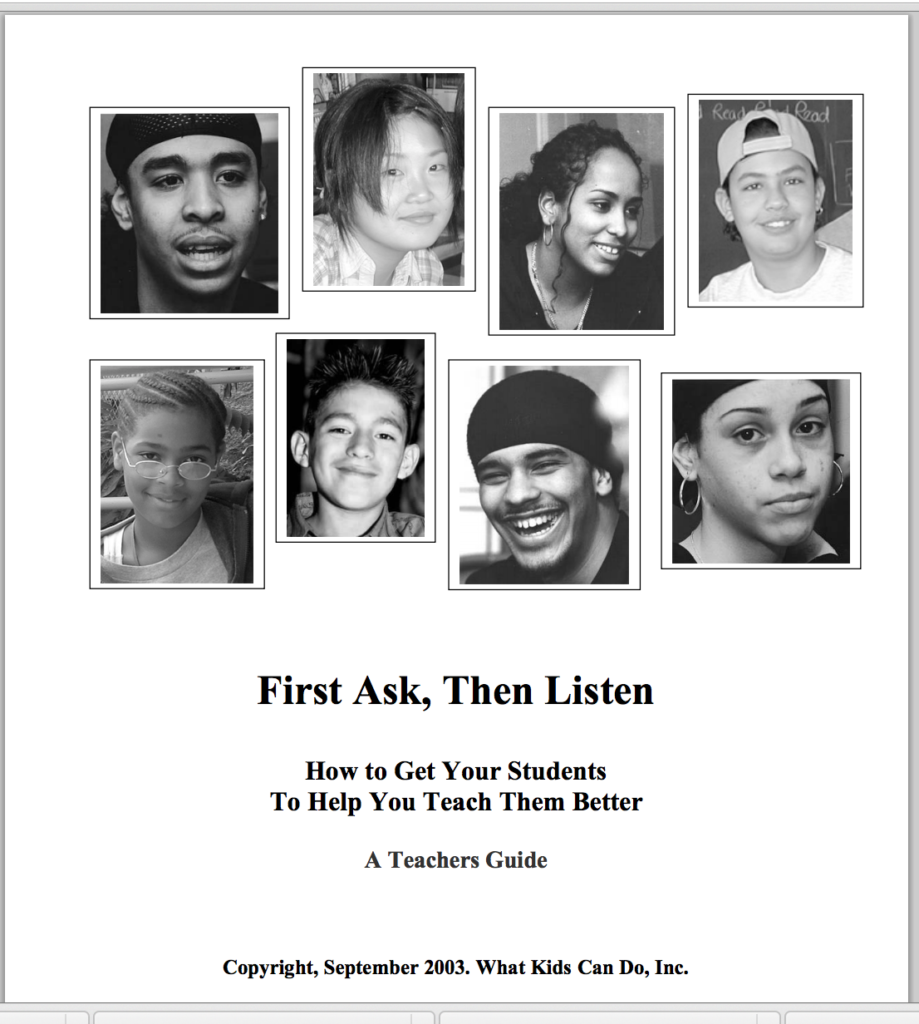
This short guide, compiled by What Kids Can Do researchers, features advice on how teachers can listen to students to enhance their teaching. It includes tips on structuring conversations with students, as well as the question prompts and exercises (usually questionnaires), used to gather research for the popular book Fires in the Bathroom: Advice for… Read More ›
Turn Up the Volume: The Students Speak Toolkit
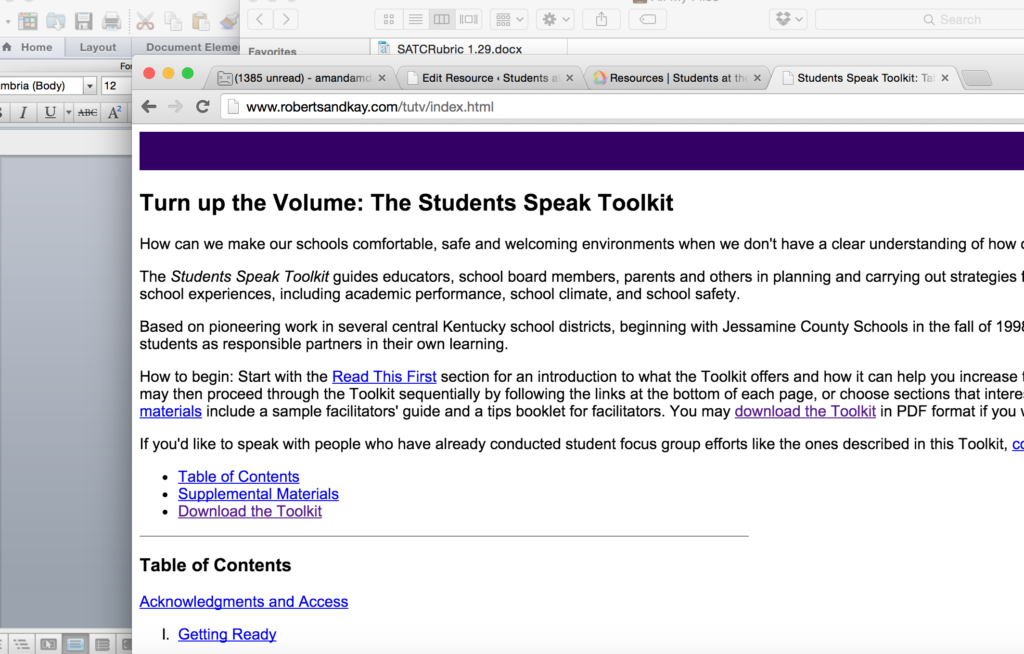
This toolkit is designed to help any school or district conduct focus group research with students to learn their opinions about school and learning experiences. It provides detailed steps of the process to select a working team made up of adults and students, choose your research topic, plan the logistics, facilitate the focus groups, and… Read More ›
Student Voice Twitter Conversations
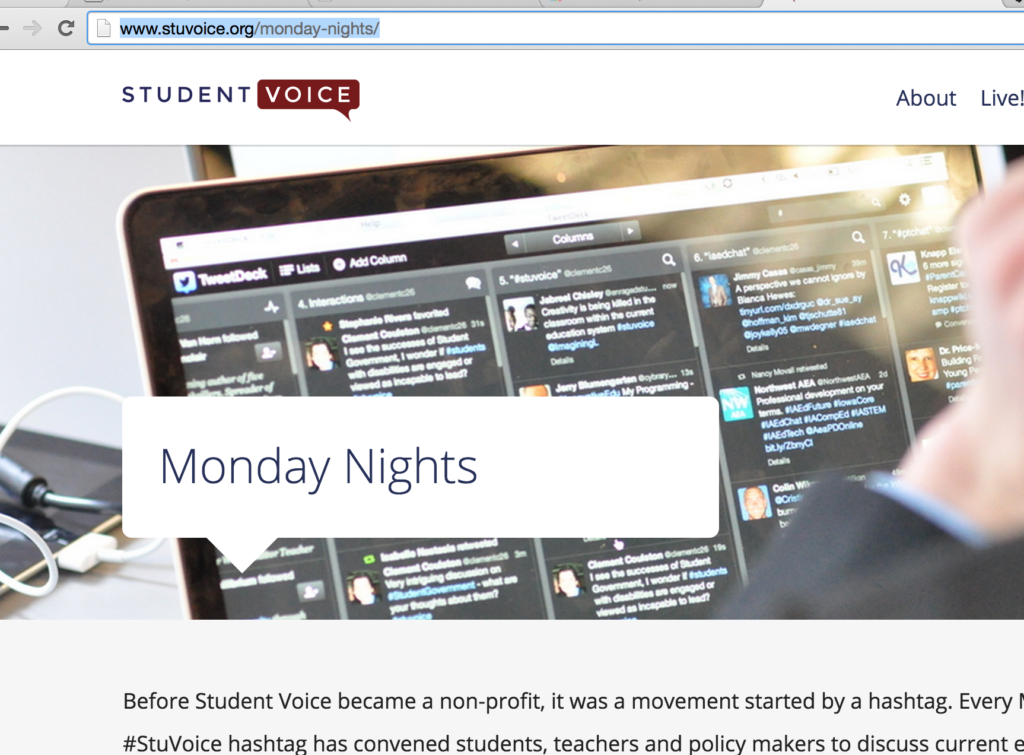
This Twitter feed created by a group of students in 2012: Student Voice (#stuvoice) hosts weekly conversations for students, teachers, policymakers, and key stakeholders to discuss current topics in conversation. Archives of selected Monday night twitter chats and video chats are available on the Student Voice website. The group and in-person education summits in dozens of countries… Read More ›
Why Change Schools: Section One, Module B

This module was designed to promote discussion and build support for student-centered education reform. It explores topics that can help move the participants from an individualistic view of education to a mental model which treats education as a common endeavor. It strives to leave participants with several important takeaways including the common purpose of education,… Read More ›
Guide to Protocols that Support Dialogue
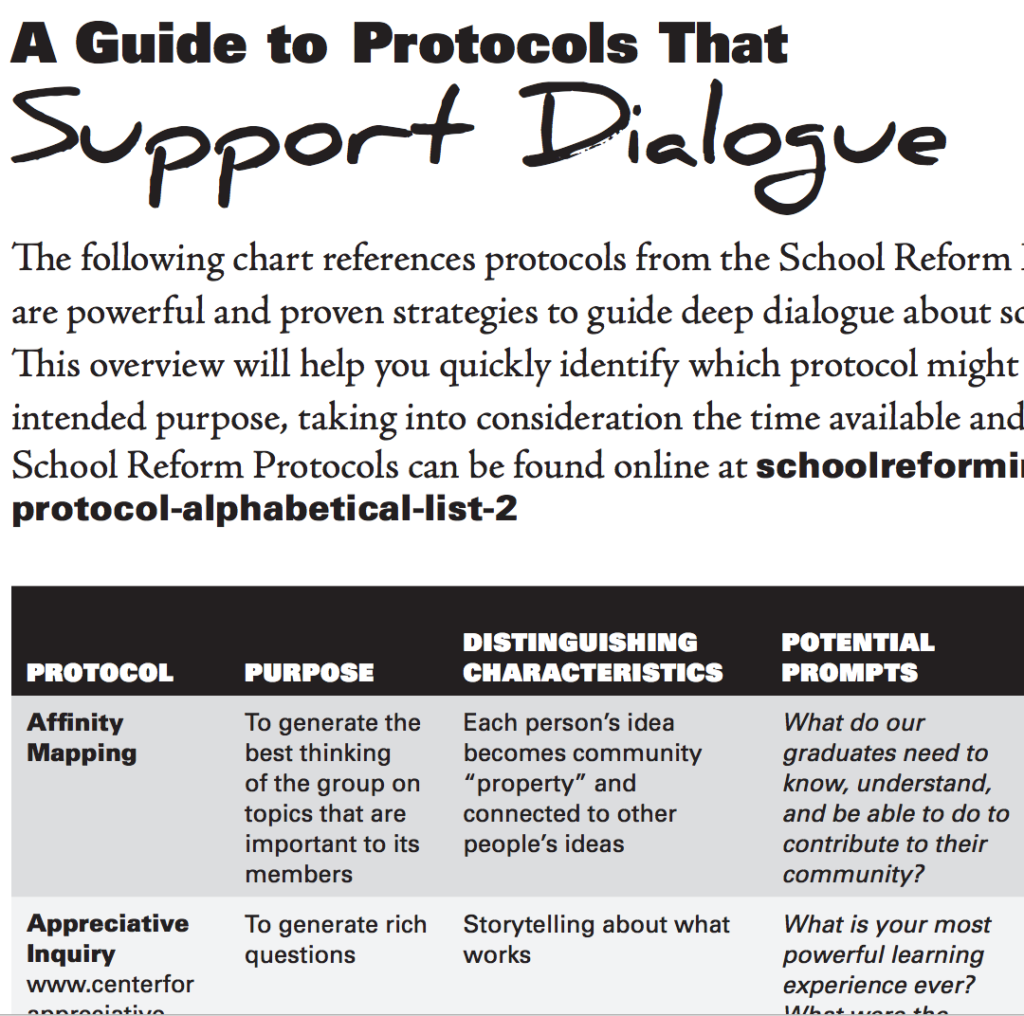
This guide catalogues protocols developed by the School Reform Initiative that can be used to stimulate productive public conversations. This list provides a brief overview of the purpose, description, time needed, number of participants, and possible question prompts to begin the activities. You can also find a link to the full protocol instructions which are… Read More ›
Experiencing “Curricular Opportunities in the Digital Age”

In “Curricular Opportunities in the Digital Age,” a paper for the Students at the Center project, David Rose and I aim to describe how technology can be used to create more student-centered learning opportunities for diverse learners within a Universal Design for Learning (UDL) context. We describe how applying the principles of UDL—provide multiple means… Read More ›
Public Engagement: A Primer from Public Agenda

This short guide provides an overview of public engagement. It describes the differences and advantages of a capacity-building versus an event-oriented approach to public engagement. It outlines ten core principals to effective public engagement such as attending to people’s main concerns, framing issues for dialogue, and providing the right amount of information at the right… Read More ›